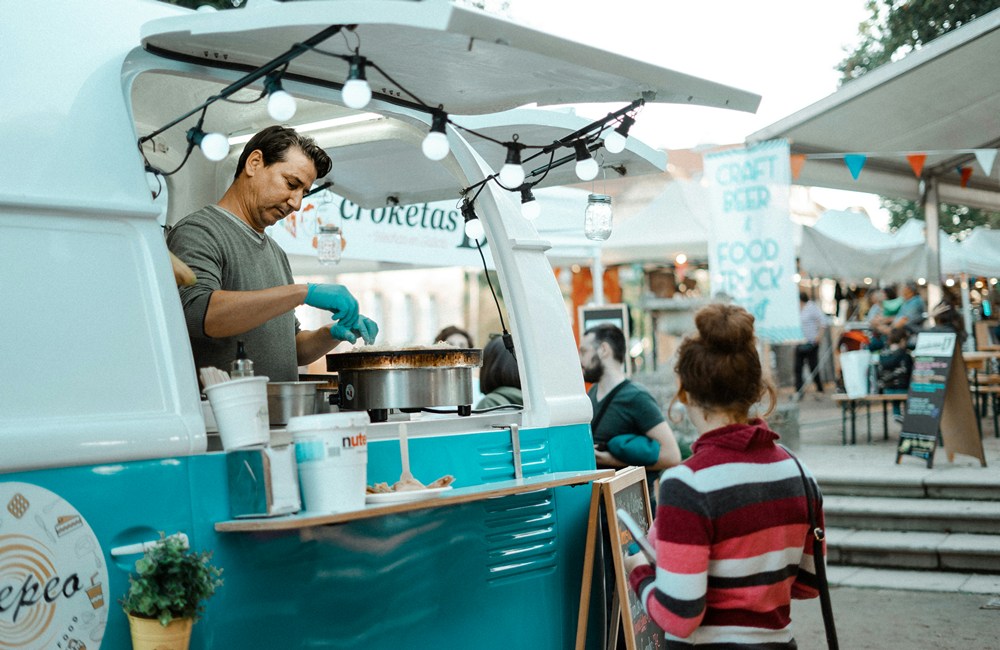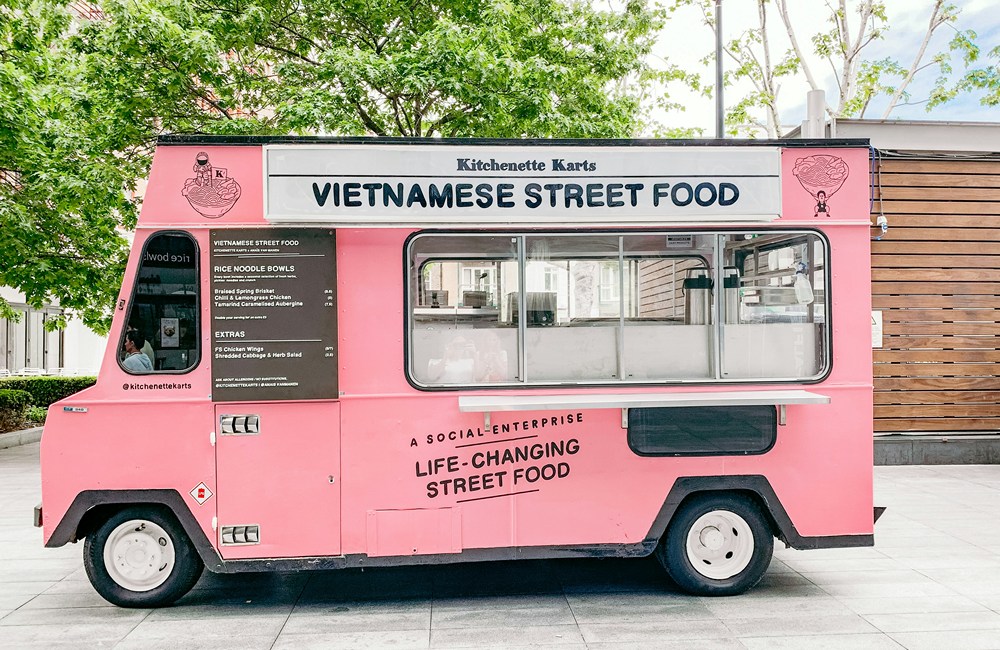Everywhere seems like a target market for food trucks in 2024. You'll find many brick-and-mortar eateries transitioning into the food truck business model. If you drive around the country, you’ll find that even in rural areas, this is a viable, thriving option.
And that’s why the industry was valued at more than $2.2 billion in 2023.
If you decide that it’s time to look through food truck business ideas and you want to dive into the industry, there are a few things that you need to do before investing in a truck and “opening your doors.”
5 Things to Do Before Starting a Food Truck Business

1. Research Your Options and Restrictions
Unfortunately, starting a food truck business isn’t as easy as coming up with an idea and capitalizing on it. You need to remain cognizant of the restrictions in your state and city. For example, in Atlanta, you won’t find any food trucks.
Why?
It’s illegal to operate a traditional food truck in the city. You’ll want to verify with your city that you can run a food truck. If not, you may need to adjust your plans and go to a further location to open your eatery on wheels.
Restrictions are also in place on where you can park your truck.
Many operators have to pay a fee to the landowner to park their vehicles. If you don’t conduct your research and learn the true costs of “lot rent,” you may end up paying substantially more than you assumed.
Spend time researching these two options before moving on to the next steps because you may quickly find out that your plan is unviable.
2. Check the Competition and Create a Business Plan for Food Truck
Your plan is viable – so it seems – but what is the competition like? You'll want to do your due diligence to be sure that there’s room for your truck in the area. A few options are:
- Visit high-traffic areas
- Go to these locations at prime time
- Analyze the food trucks in the area and see if they’re busy or barely serving food
If you’re catering to a very specific demographic or group, it’s also possible that there’s no demand in your area. For example, if you serve Cuban food, it’s possible that there’s too little interest in your location.
What we recommend is that you go to the food trucks, order food and test the competition. Perform an analysis:
- What is the food truck doing right?
- Where can the food truck do better?
- What are the prices like?
Spend time analyzing all of these points to better understand what you’ll need to do differently to compete in your area.
Performing basic research like this is part of your food truck business plan. Creating a business plan is intimidating for many would-be business owners, and if you have the budget for it, you can always hire someone else to create the plan for you.
A basic plan will include:
- Concept: What makes your food truck unique? Add your name and logo to the plan, too.
- Menu: What will your proposed menu be? You'll want to include all of the ingredients, costs, time to cook each item, and profit margins.
- Suppliers: Where will you source your ingredients? What will your base ingredients cost you? You need to know this information beforehand to calculate your profit margins adequately.
- Costs: Determine all of the startup costs. You may know how to run a food truck business, but it’s easy to underestimate the true cost of operation. You will need to buy a truck, equipment, initial inventory, pay for licenses and business registration, gas and have enough money to keep operations open during the formative months or years of the company’s operations.
- Target market: Conducting in-depth market research is next. Who will be your ideal customer? What is their age? Earnings? How many of these ideal customers exist in your area? If you find that the figure is too low, it doesn’t make sense to open a business if the demand doesn’t exist.
- Locations: Your location research does need to be defined. You may need multiple locations to choose from. Three, four or five potential locations should be on your list because you never know what may happen in the future.
You'll also need to factor in additional items, such as marketing, into your plan and what these costs may include. Permit and licensing costs should be included, along with a section on employees and whether
- You’ll have any to begin with
- If you plan to hire in the future
Sales projections are also necessary in every business plan and should be included if you need to secure financing.

3. Licensing and Permits
Creating a legal business entity is a must. You'll need to obtain:
- Licenses
- Permits
And you’ll need things, such as insurance and to consult with a lawyer or CPA on the best business structure to create. If you don’t have a legal business created, you may be held personally liable in lawsuits, which can have life-altering consequences.
4. Raise Capital for Your Food Truck
Business ventures require you to have some sort of capital to get off the ground. You'll need to have the capital to purchase:
- Business truck
- Permits and licenses
- Insurance
- Utensils
- Equipment
- Appliances
- Web design
- Advertising
- Inspections
Will you need to retrofit a truck? Will you need to hire a lawyer or professional to help you form your business?
Capital can come from:
- Savings
- Investors
- Loans
- Etc.
5. Marketing
Your truck is ready, and you have all of your equipment, but now you need to market yourself. If your truck is well-positioned, it may market itself. But if not, will you:
- Purchase advertisements in your area? If so, where will you advertise? What are the costs?
- Will you use social media? What platforms are best?
- Will you have business cards or coupons? Who will you give them to and also who will print them for you?
If you have your marketing plan written, you’re done with the preparation stage.
Now that you know how to open a food truck business, it’s time to begin going through these steps and making your dream become a reality.


